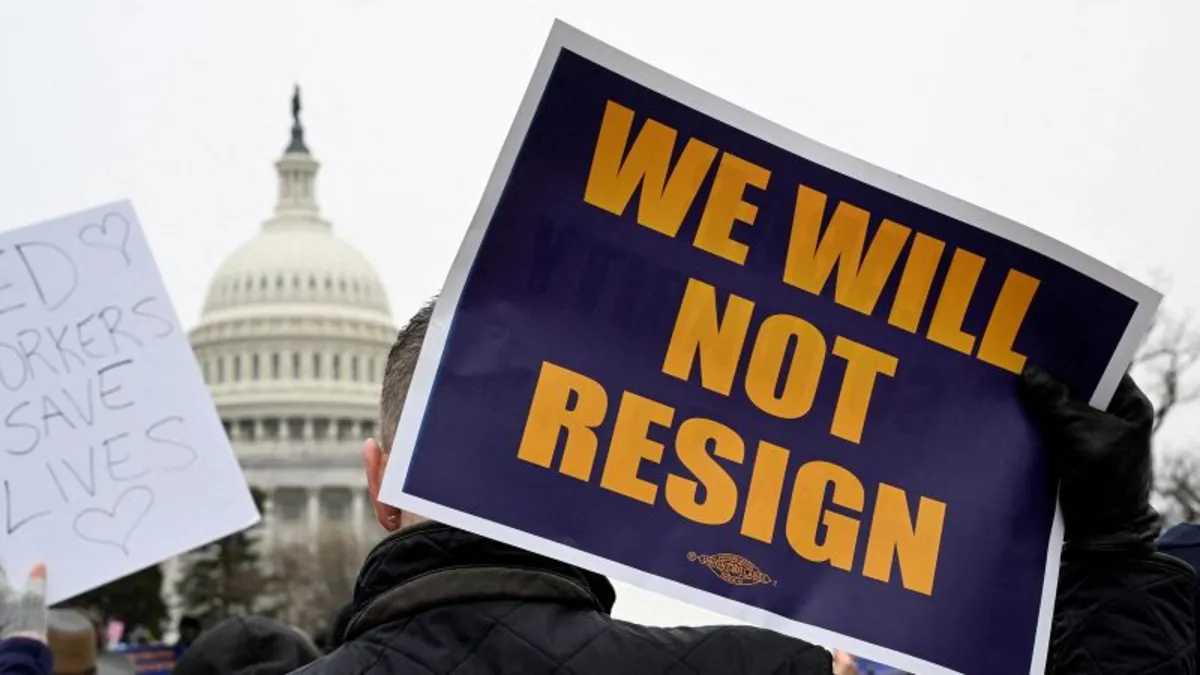
Federal workers were caught in a whirlwind of confusion on Monday as they attempted to navigate a weekend email from Elon Musk demanding an explanation of their work from the previous week. The email warned that failure to comply could lead to job loss, leaving many workers uncertain about the appropriate response.
The situation was further complicated by conflicting directives. Some federal employees were instructed to comply, while others were advised against it. Many agencies awaited further guidance from their leadership throughout the day.
In a statement from the Oval Office, President Donald Trump described Musk's demand as "ingenious," suggesting that non-compliance could result in termination. However, the Office of Personnel Management (OPM) later clarified that responding to the email was voluntary and failure to do so would not be considered a resignation.
With the deadline looming at 11:59 p.m. Monday, different agencies reacted in varied ways. High-profile departments like the Justice Department, State Department, and the Pentagon instructed employees not to respond. In contrast, the Commerce and Transportation departments directed their staff to comply, with the latter requiring responses from the Federal Aviation Administration's air traffic controllers, who are already working mandatory overtime.
Meanwhile, NASA announced it would respond on behalf of the agency, assuring employees that their employment would not be impacted if they chose not to reply.
The initial email from OPM on Saturday triggered a flurry of activity as federal workers across the country tried to decipher the directive. Meetings were hastily arranged, and employees sought clarification from supervisors.
David J. Demas, president of the American Federation of Government Employees Local 3003, reported receiving numerous inquiries from concerned members about how to respond to OPM's email. Some workers were uncertain if they needed to access their work emails from home or report to the office to comply.
Many federal employees expressed frustration with the situation. At the Department of Veterans Affairs, workers attended multiple meetings to discuss the directive, which diverted time away from their primary duties. At the Environmental Protection Agency, employees were told to comply without disclosing sensitive information, leading to dissatisfaction among staff.
At the Department of Health and Human Services, employees were advised to keep their responses vague to protect against potential cybersecurity threats.
In some agencies, employees resorted to humor and satire in response to the email. At the IRS, colleagues jokingly drafted a list of fake activities performed the previous week, highlighting the absurdity of the situation.
Video displays at the Department of Housing and Urban Development featured a satirical video of Trump and Musk, which was later replaced with content promoting Trump's administration.
Federal workers remain uncertain about how to proceed, with many feeling caught between conflicting instructions and a lack of clear guidance. As Trump suggested that non-responders might not be working at all, the pressure to comply mounted.
Musk, undeterred by the chaos, posted on X that employees would be given another chance to respond, with the consequence of termination for a second failure to comply.